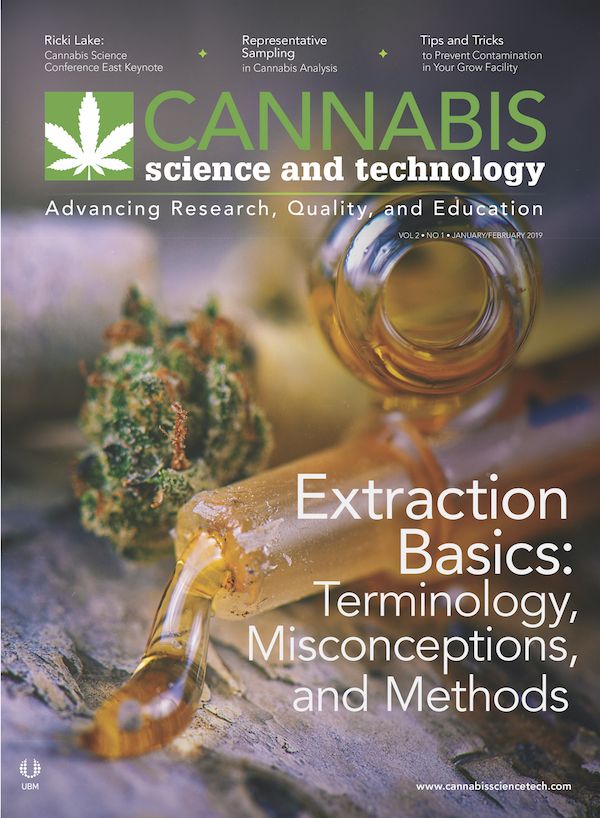Five CBD Regulatory Myths
Where does cannabidiol’s (CBD) legal status stand following the 2018 Farm Bill? One attorney looks at common misperceptions.
Photo © Istockphoto.com/Kuzma

Where does cannabidiol’s (CBD) legal status stand following the 2018 Farm Bill? One attorney looks at common misperceptions.
The passage of the 2018 Farm Bill capped off a momentous year for cannabidiol, or CBD, a nonpsychoactive derivative of cannabis. The year kicked off with the January 2018 rescission of the Cole Memo, the U.S. Department of Justice’s policy statement regarding cannabis enforcement in states where cannabis is legal, which essentially stated that, given limited resources, the federal government would not enforce the federal marijuana prohibition in states that had legalized marijuana in some form. Following this move, many expected an increase in federal marijuana enforcement. The feared enforcement uptick never materialized, though. By mid-year, the U.S. Food and Drug Administration (FDA) approved Epidiolex, a prescription drug made from a CBD isolate for treatment of rare forms of epilepsy. Later in the year, Senate Majority Leader Mitch McConnell (R-KY) saw opportunity with the Farm Bill update to expand industrial hemp legalization at the federal level and introduced new legislation within the Farm Bill to legalize U.S. industrial hemp as an agricultural commodity. Following conference committee work to iron out differences, the House and Senate passed the final version of the Farm Bill in mid-December, and the President signed it on December 20, 2018.
Companies are now considering which new business opportunities will result following the Farm Bill’s passage. It’s important to separate the myths regarding what the Farm Bill did from the realities of where CBD’s legal status stands.
Myth #1: CBD Is Fully Legal Since It’s Not a Controlled Substance Anymore
It’s more complicated than that. Regulation exists at the federal and state levels. At the federal level, the 2018 Farm Bill deschedules industrial hemp and various derivatives thereof, including CBD, from the Controlled Substances Act when produced in compliance with a state hemp program. Industrial hemp is defined as cannabis (Cannabis sativa L.) and derivatives of cannabis with extremely low (less than 0.3% on a dry weight basis) concentrations of the psychoactive compound delta-9-tetrahydrocannabinol (THC). The U.S. Drug Enforcement Administration (DEA) retains jurisdiction over CBD from marijuana because marijuana remains a Schedule I substance. The DEA isn’t the only relevant regulator, though. The FDA and the states also have jurisdiction.
State laws currently are a patchwork. Approximately one-third of states have hemp programs set up pursuant to the 2014 Farm Bill. One-third of states do not have hemp programs and therefore do not have legal mechanisms for sale. Finally, approximately one-third of states have programs in some developmental stage, but regulations are not final.
Myth #2: The FDA Has Approved CBD, So the Claims I’m Seeing Online Must Be Substantiated
The FDA has only approved Epidiolex for treatment of rare forms of epilepsy. This approval does not mean that other CBD claims are approved or that the FDA agrees that CBD can be lawfully used in other products. The FDA’s position is that CBD from any source is an active drug ingredient. The FDA has voiced this position in warning letters and reiterated it in late December. The agency also highlighted its continuing concern about consumer safety and disease treatment claims featured on unapproved CBD products.
Further, the FDA acknowledged the public’s growing interest in CBD’s potential therapeutic capabilities and expressed a commitment to consider whether there are circumstances in which certain cannabis-derived compounds might be permitted in a food or dietary supplement. The FDA stated that it intends to hold a public meeting to solicit input relevant to a CBD regulatory strategy and to allow stakeholders to express their views on topics, including safety. The agency also expressed a “commitment to pursuing an efficient regulatory framework for allowing product developers that meet the requirements under our authorities to lawfully market these types of products.” Although not specific to CBD, in that same press release, the FDA announced that three hemp ingredients-hulled hemp seeds, hemp seed protein, and hemp seed oil-may be legally marketed in foods under the conditions set forth in their respective Generally Recognized as Safe (GRAS) notices. In short, there’s reason to be hopeful that industry and the regulators can chart a pathway to legal use of CBD in products beyond Epidiolex, but this will take time.
Regarding claim substantiation, companies should also be mindful that the Federal Trade Commission and state consumer protection authorities have jurisdiction to pursue unfair and deceptive advertising. Product health claims must be substantiated by “competent and reliable scientific evidence.” Currently, while there is a lot of anecdotal evidence regarding the benefits of CBD, the scientific evidence is just emerging. When forging ahead in this new frontier, companies will want to remain mindful of the legal standards regarding claim substantiation and testimonials in particular.
Myth #3: The 2018 Farm Bill Preempts All State Laws
On the issue of preemption, Section 10113 of the 2018 Farm Bill expressly does not preempt laws that are more stringent than those found in the bill regarding the production of hemp. See Sec. 297B(a)(3)(A) (“No Preemption. – Nothing in this subsection preempts or limits any law of a State or Indian tribe that (i) regulates the production of hemp; and (ii) is more stringent than this subtitle.”).
However, Section 10114(b) of the 2018 Farm Bill does provide: “No State or Indian Tribe shall prohibit the transportation or shipment of hemp or hemp products produced in accordance with . . . Section 10113[] through the State or the territory of the Indian Tribe, as applicable.” Section 10114(b) thereby clearly preempts any state law prohibiting shipment of industrial hemp through a state or territory of an Indian tribe.
It also arguably preempts any state law prohibiting the sale of industrial hemp in a state or territory of an Indian tribe, so long as the hemp was produced (in another state) pursuant to the requirements of Section 10113. Unfortunately, it is not clear whether Section 10114(b) of the Farm Bill preempts state laws disallowing sales of industrial hemp. It will likely take litigation to decide the extent of the preemption, if any, regarding sale of industrial hemp in states which have laws disallowing such sales.
In addition, there is a patchwork of state-level product considerations. For example, California expressly follows the FDA’s position that CBD cannot lawfully be used in foods or dietary supplements. By contrast, New York expressly allows CBD in dietary supplements (although the FDA does not) when the products meet other program requirements. Companies should consider these types of regulations on a state-by-state and product-by-product basis, particularly in the context of the state enforcement environment when considering whether to enter a particular market.
Myth #4: Now That CBD Is Legal, We Can Advertise Everywhere
Not quite. Even setting aside the claim substantiation issue flagged above, certain platforms such as Google, Facebook, and Instagram prohibit CBD advertising. Likewise, although CBD is not psychoactive, there may be product confusion particularly among a younger audience. Companies creating and distributing CBD advertising can help protect brand value by being sensitive to these considerations.
Myth #5: Since CBD Is Legal, There Is No Risk in Selling It
While the 2018 Farm Bill provided needed clarity as to the status of industrial hemp at the federal level, this remains murky territory, with localized enforcement in many states adding to the confusion about the product. Companies seeking to sell CBD should consider their specific products in conjunction with the other federal and state considerations discussed above.
It’s 2019, and we’re all entering a new frontier. As companies race to take advantage of this emerging market, thoughtfulness and attention to the patchwork of legal obligations and uncertainties are likely to pay off in the long term.
Kristi Wolff is a partner in the Advertising and Food and Drug Law practice of Kelley Drye & Warren LLP.
Disclosures:
This article was originally published in the January/February 2019 issue of our sister publication, Nutritional Outlook (http://www.nutritionaloutlook.com/regulatory/5-cbd-regulatory-myths).

Best of the Week: April 11 – April 17, 2025
April 18th 2025Here, we bring you our top four recent articles covering standards in the cannabis industry, a cannabis for sleep survey, a new research and resource center at the University of Mississippi, and in-person information sessions from Metrc.